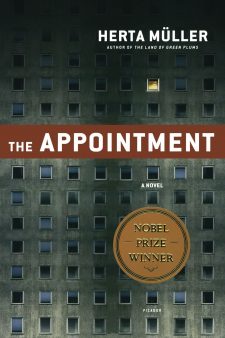Gloria Hytner is the protagonist in Jason Graff’s edgy study of a disconsolate woman in a marriage she grows to resent. If it hadn’t been arranged by mistakes and bad luck, she wouldn’t have considered marrying working-class Daryl, even though he is a wood sculptor and a graduate of the Peckham School of Fine Arts.
Although Stray Our Pieces is told from Gloria’s point of view, she nevertheless gives a voice to the three subordinate characters as though they are themselves protagonists: Daryl, who works as a cabinet maker at the Custom Cabinet Makers’ Warehouse; David, her young son who is prone to crying jags; and Edna, her haughty mother who dispenses sarcastic jabs to anyone in her vicinity. In some ways Gloria inherited her mother’s stinging temperament, but her backstory makes up for any prejudice against her.
Gloria consumes her role as narrator, though Daryl, David, and Gloria vie for narrative time and jockey for attention as they provide valuable insights into Gloria’s depression. Think of it this way: Gloria feels life has cheated her. After all, she has a perfect LSAT score and is a first-year law student when she first meets Daryl at a rooftop party. She and Maria have settled into an apartment in the city, and on an icy February day she sees two pink lines on a pregnancy test, a positive result she had never considered possible, although they do not use condoms every time: “I almost couldn’t look when the time finally came. I picked up the stick, squinted my eyes shut and counted to three. There they were, the two pink lines, one slightly thicker than the other.”
She debates what and when to tell Daryl and settles on meeting him at Nuncio’s pizzeria, where he greets her with “his customary air of cheerful cluelessness” that quickly metamorphoses into silence: gaping mouth and facial signal “I can’t be a Dad.” Perhaps not at that precise moment, but in her soon-to-be future, Gloria will determine that her life as a suburban wife and mother is a futile attempt to reckon with whom she has become: “It was merely the field where I allowed myself to plant and sow the earliest of those suburban lies. Those lies about my life and what I could still make of it, if only I had tried hard enough.”
If only she tries hard enough is not enough to become the generous wife to Daryl or the compassionate mother to David. Her marriage with Daryl “is little more than trading miseries with each other”; her relationship with her vulnerable son repeatedly reveals her “callousness and emotional inadequacy.” Becoming a housewife and mother so young is not the trajectory she has envisioned. Rather, her future involves finishing law school, taking “on corporate sexism at the highest levels,” and breaking the glass ceiling forced upon women by male misogyny, thereby shattering “all barriers” and transforming “the whole capitalist system.” Once and for all to power its castration.
Voice in a literary work is the point of view, the attitude, or tone, of the narrator. It is one of the five elements in fiction—setting, character, plot/action, tone, mood—but in Stray Our Pieces, voice takes precedence, and mood, its twin, produce the powerful synergy that propels the story forward. The voices of these four characters create the atmosphere that permeates the mood throughout the novel.
As a dynamic combination, tone and mood function to reveal more than any isolated literary element in Stray Our Pieces. Take Gloria’s perception of Daryl. He is a good guy but lacks the fundamentals of intellect and curiosity that Gloria sees as essential in a marriage. Daryl internalizes this attitude toward him and gives voice to it during an argument about David: “Look, the dude’s my son, but he has a way of eyeballing me that, like, makes me think he thinks I’m a moron. And that he’ll like shut me out if I don’t do what he says, what he asks.” Then, Daryl says, “Just like you do a lot of times.”
The argument not only lends insight into Daryl’s point of view but also secures the mood of compassion, and sadness, for him and David. Gloria knows she doesn’t project the emotional equivalence of Daryl’s capacity to make people feel like they’re understood, or that “he’s just good at talking to people,” as his son observes. Then, when Daryl picks up Book V of the series Lands of Power and Dust that his son obsessively reads, the two start a mini-book club that places Gloria in an ironic position: She is the cold mother she knows herself to be and the jealous wife when her husband gains her son’s respect. Daryl has replaced her.
The synergy between tone and mood gives Stray Our Pieces the verisimilitude that makes reading the novel an exercise in reader projection: Gloria, Daryl, David, and Edna compel readers to come to terms with these four characters as well as their own behavior, thought, and temperament.
Consider that Gloria has remade her life and is as close as she ever has been to catching up with the dreams of her former self. In her closing words to the reader, she says motherhood is “like daydreaming; neither ever ends, and the sooner peace can be made with what’s possible, the happier you’ll be.”
Who am I to judge? could be a reader refrain throughout this thoughtful and evocative novel.



